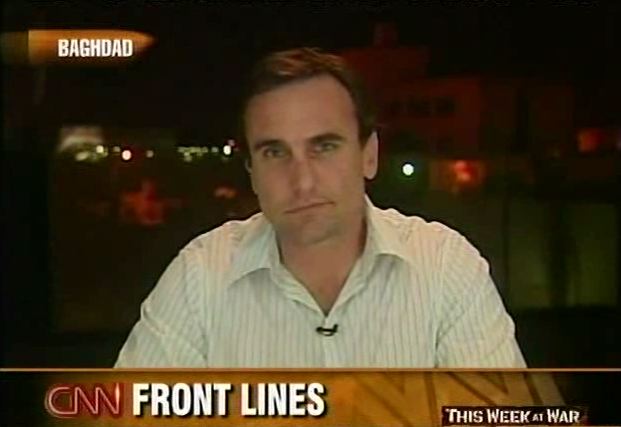TWAW: "It's one of the most intense battlefronts of the war at the moment."

Click photo to play
Length: 3:42
(BEGIN VIDEOTAPE)
COL. DAVID SUTHERLAND: In Diyala we're seeing an increase in attacks against coalition forces and across the battle space.
MICHAEL WARE, CNN CORRESPONDENT: Is this the new cutting edge of the front line against al Qaeda?
SUTHERLAND: I think the fight right now is in Diyala.
(END OF VIDEO CLIP)
TOM FOREMAN: A year ago the coalition forces in Iraq declared Baquba and the surrounding Diyala Province a relatively pacified area. Let's go the map and take a look at where this is. It's a little bit north and east of Baghdad. That's Diyala, a fairly large area and a lot of Sunnis in this area, and there's Baquba right in the middle of it. Now however, it's one of the most dangerous places in Iraq, as trained insurgents, perhaps some of them pushed out of Baghdad down here where they're fighting with U.S. troops, have moved up there. CNN's Michael Ware has just returned from an embed with the 25th infantry division in Diyala Province, he's in Baghdad now. Michael, give us a sense of what's happening there.
WARE: Well, Tom, what I've seen in Diyala Province is the face of the new front line against al Qaeda here in Iraq, or indeed the old become new again. Al Qaeda's always had a strong presence in Diyala, yet with the pressure applied to their organization, while U.S. forces unleashing Baathist insurgents and Sunni tribes against them in al Anbar Province, with the focus of the surge in the capital of Baghdad, we've been seeing for some time now a migration of al Qaeda operations to Diyala Province. At the same time we've seen a new American brigade rotate in and apply aggressive new strategies. We're now seeing the levels of violence double what they were one year ago, and in just five months, since this brigade arrived in that province, already 44 U.S. soldiers have been killed. It's one of the most intense battlefronts of the war at the moment. Tom?
FOREMAN: There are plenty of groups there, Michael, that clearly don't like the Americans being there, but a lot of these are groups that don't actually like each other much either. How much is that come into play?
WARE: Well, that's always been the state of this war here. I mean, this has not been one homogonous enemy that has faced America or indeed the Iraqi government. There are many wars within wars and it has been this way from the beginning. What the U.S. has failed to do, however, is capitalize on those divisions and fractures. That is until recently. We're now starting to see the results of a shift in U.S. strategy that began at least six months ago, that's now trying to separate more than ever the home-grown nationalist insurgent from the al Qaeda extremist. None the less, the sectarian war --
FOREMAN: Is it working, Michael?
WARE: Well, in al Anbar Province, it certainly is. I mean, it's been an unhappy marriage from the beginning. From the outset of this war, when the professional Iraqi army was sent home in relative disgrace with dishonor by the then-coalition administration, they returned to the places they know best, and it's from where they rose up as the insurgency. When al Qaeda came to join the fight it was, "the enemy of my enemy is my friend." They never shared the same agenda. So there's been so many fractures and it's only now we're starting to see them really, really come apart at the seams.
FOREMAN: Michael Ware, always interesting reporting. Thank you so much for joining us after your difficult trip up there. We look forward to more reporting.
